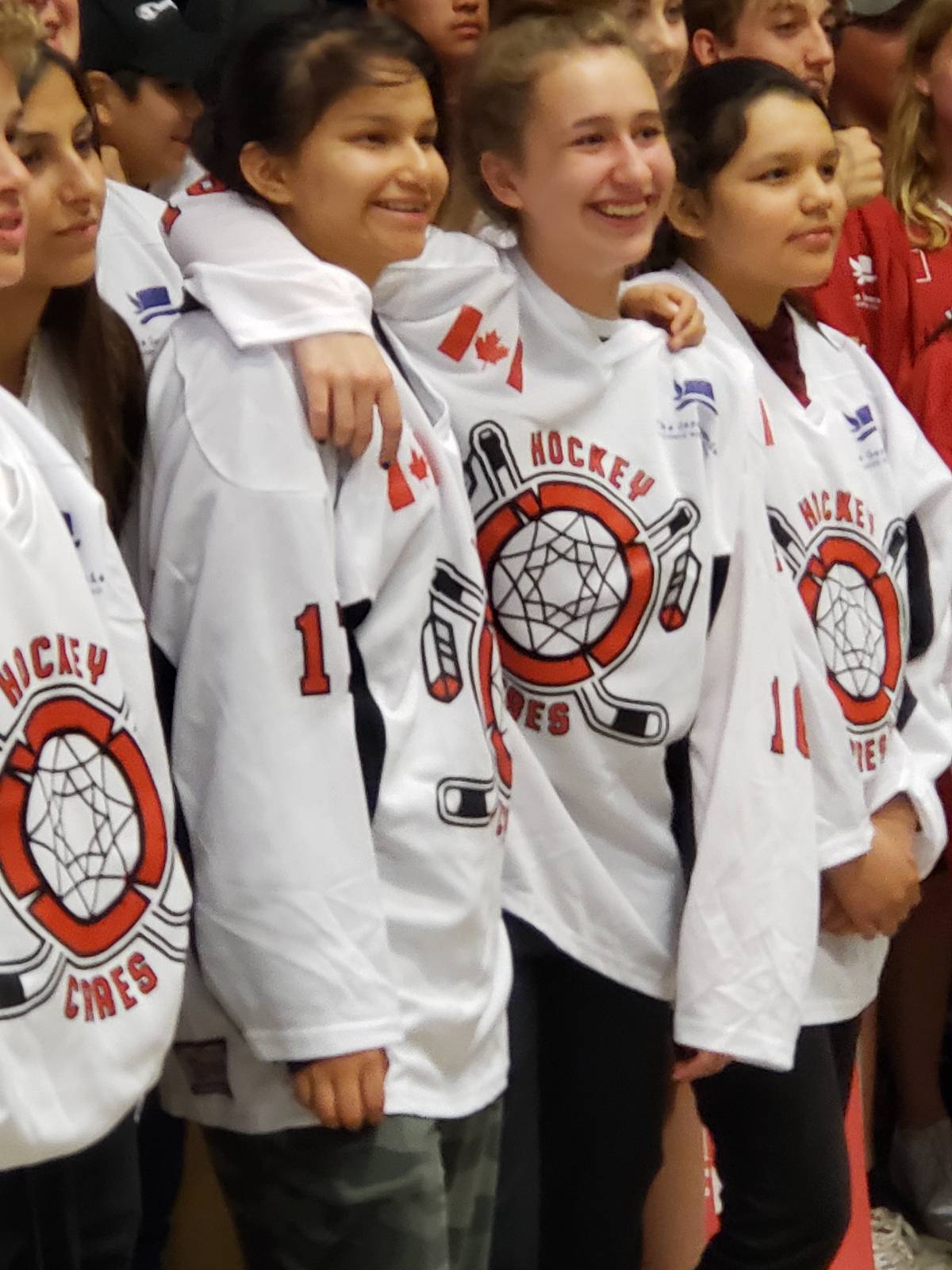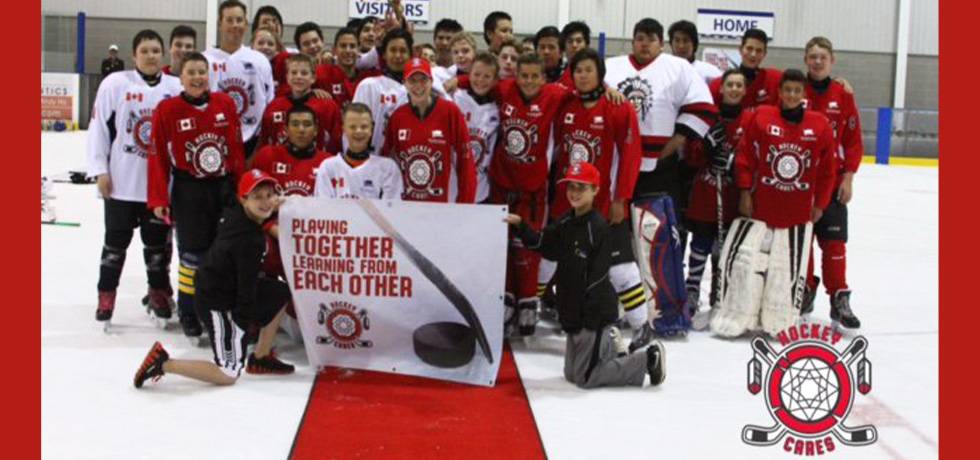Hockey Cares goes beyond just hockey.
The True North Aid program was created in 2017 with the purpose of connecting youth through the love of hockey.
The program is an exchange between Oakville and Attawapiskat bantam hockey teams. Players from Attawapiskat travel to Oakville in July and youth from Oakville will fly up to Attawapiskat in November to learn about and experience a new culture and play hockey.
The program centres around players ages 13-15 and is designed so all players realize the importance of completing high school. Only four out of 10 Indigenous youth finish high school, compared to nine out of 10 non-Indigenous youth.
The program’s intent is to introduce Indigenous youth to the opportunities available to them in the Canadian ‘south’ so they can see the possibilities. Many of the players live in very remote areas and may never even see the world outside of their community.
The Hockey Cares Project also works with colleges and universities to not only show Indigenous youth the opportunities available to them, but also to introduce existing support networks provided by Indigenous people living in places like Oakville and the Greater Toronto area.
Founder Sue Heddle said that the program helps expose the Attawapiskat kids to post-secondary education opportunities.
“If they want to do post-secondary, there’s nothing near Attawapiskat, so they must leave, and when you live in a community of 1,700 people and you have to leave, it’s very stressful,” Heddle said. “We’re trying to form a backbone of support for them through meeting mentors, indigenous mentors from here, and families from here that can, can help them if they want to do post-secondary this year.”
But it is not just the players from Attawapiskat who benefit from the exchange.
“It’s an eye-opener for Oakville kids to go up north and to experience the beauty of James Bay and the stars,” Heddle said. “It is also an experience living where you can’t just get the water from the tap.
“Also there’s the crisis of teen suicide up there. So, by making friendships, these kids can talk to one another.”



Learn more about Hockey Cares
To donate or discover more about the Hockey Cares program you can visit its website.
Jonathan and Leah from Oakville are past participants in the Hockey Care program. The players shared what it was like to be a part of the exchange.
“Until you go up and see a First Nations reserve, it doesn’t really click with you until you’ve experienced some of the conditions that they experienced, especially not having access to (clean drinking) water,” Jonathan said. “I really enjoyed making friendships and learning culture. But I think for me, what I took out of it was kind of the concept of privilege.”
“I thought it was really eye-opening for me to be able to see the privilege that I have and gain a new sense of like self-awareness. It makes me want to continue working with the program and further education on indigenous culture,” Leah said.
Attawapiskat’s Sabett Hookiman, who is also a past participant of the program, said that the highlight of the trip for her was meeting new friends at the group introduction barbeque and at the rink.
Jonathan said that he would recommend the program to anyone.
“I think anyone with interest in hockey, you must look into the program,” he said. “You should a hundred percent do it. You don’t realize how much it means until you do it”
“I agree, I wasn’t sure about the program before I went,” Leah said. “As you go through the program — especially when they came here — I thought it was really, cool. It was one of the highlights of my summer. Then I returned the next year and I had looked forward to it like the whole year, because it was a great experience.”
Heddle says that working for CBC for 23 years and seeing all the disasters happening around the world, she started to notice that there are people in “our own backyards” who have inadequate housing or access to clean drinking water. She decided this is something that Canadians should be aware and she created Hockey Cares to shine a spotlight on the issues..
Heddle said that many of the kids that have been through the program remain in touch with each other via social media.
“We’d love to hear from them, and we will do our best to pair them with another community,” Heddle said. “This year we’re going to have someone from Calgary and someone from the neighboring community to Attawapiskat, coming to shadow so they can see how the program runs,” Heddle said.
Many youths have benefited from this program according to Heddle.
“The interesting thing is how it’s taken their life in a turn,” she said. “Some of them may have thought they were going down one path for their education and then suddenly, they’re saying, no, I’m really interested in indigenous studies, or I’m interested in environmental studies because I want to be able to help with the water.
“1It’s interesting how it’s changed their life, change their direction or their paths.”
It has certainly changed life for Heddle. She remains in contact with some kids from the program.
“I’m touched when kids reach out to me, they call me Mama Sue up there,” she said. “They reach out to me if they have a problem. I had one girl come out to me and didn’t know how to tell her parents. And you know, I felt honored that they trust me enough to come to me first with their problems.”
Anyone who is interested in learning more about the program or how they can help can visit the Hockey Cares website.

